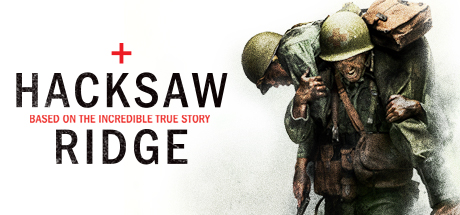War
A movie genre where war is either the major action of the film or the essential background for the film's action. Though largely focused on combat or preparation for fighting, the genre also embraces other war-related subjects: prisoners of war, resistance fighters in occupied countries, spy activities during wartime. War can also serve as a context for highly dramatic situations though the characters may not be directly involved in the fighting. Although war is as old as mankind, the term war film is usually restricted to movies dealing with modern warfare and situations closely allied to war or armed forces. The movies dealing with more distant historical periods are better be described as historical films.
Content
War films acknowledge the horror and heartbreak of war, letting the actual combat fighting (against nations or humankind) on land, sea, or in the air provide the primary plot or background for the action of the film. War films are often paired with other genres, such as adventure,comedy, drama, romance, and many other genres and they often take a denunciation approach toward warfare. They may include POW tales, stories of military operations, and training.
Production Techniques
Often in War films, Major production techniques take place.Movies have portrayed war, along with its inherent struggles, horrors and opportunities for heroism, since the early years of film. The category of war movies spans nearly all film genres, including action, suspense, romance, westerns and even comedy. The themes presented in war movies vary and include leadership, patriotism, fighting enemies, effects on society, personal breakdowns and the absurd aspects of war. Even after taking into account their diversity, war movies do share some characteristics, for example,
- Combat scenes (sequences portraying battles that involve tanks, fighter planes, warships, firearms and hand-to-hand combat have been consistent hallmarks of war movies since the earliest days of the genre)
- Multicultural cast of characters ( War movies frequently portray combat units made up of soldiers from various geographical, ethnic and racial backgrounds. This characteristic became particularly pronounced in war movies made during and after World War II that were focused on American troops)
- Expensive to make ( since war films contain a lot of action,explosions,costume design,locations,etc... These type of movies are expensive to make and need a lot of funding)
- A lot of Effects ( war movies consistently use a lot of post production editing to make the film seem as real as possible, and represent the idea the director wants to bring out)
- True story ( many of the War films that have come out are usually based on a true story about a certain event that has transpired in the past)
How it's marketed
Since war movies have a lot of funding, They have a lot of room to invest into marketing. Usually war films consist of big Actor names, So It's easy for the usual consumer to be intrigued about the upcoming film they will star in.These type of films do not have to be sent to film festivals, rather they are marketed for the big screens, so any movie goer will also be exposed to the film. Since social media has made it easier to connect to vast amount of people, marketers will also use that as a tool to lure in potential consumers to go and see the movie.Examples of this can be Instagram,Twitter,Facebook,etc...
Dunkirk

Dunkirk, from Christopher Nolan, retells one of the iconic legends of the Second World War. From May 27 until June 4, 1940, more than 338,000 Allied troops who'd been encircled by the Nazis at Dunkirk, France, were evacuated by sea. About 100,000 were lifted from the beaches during Operation Dynamo, and the rest were taken from the harbor and the wooden breakwater. An estimated 933 ships took part; 236 were lost and 61 put out of action.The Battle of Dunkirk has inspired endless debate in the decades since. Some call it perhaps Hitler's greatest blunder to have allowed so many Allied troops to escape, while others dismiss the notion that the Allies definitely would have lost the war without the evacuation. What's not debatable is that a close look at Dunkirk reveals many factors that came to shape modern warfare.
Hacksaw Ridge

The true story of Desmond T. Doss, the conscientious objector who, at the Battle of Okinawa, was awarded the Medal of Honor for his incredible bravery and regard for his fellow soldiers. We see his upbringing and how this shaped his views, especially his religious view and anti-killing stance. We see Doss's trials and tribulations after enlisting in the US Army and trying to become a medic. Finally, we see the hell on Earth that was Hacksaw Ridge.
Other film examples

